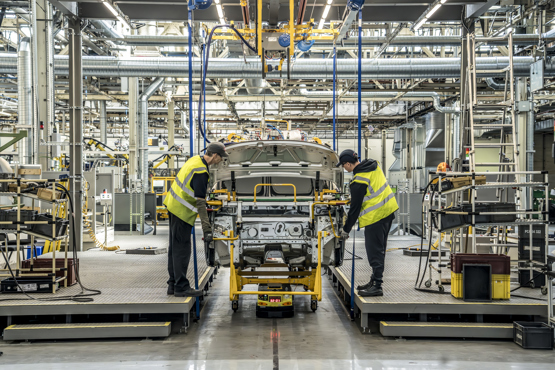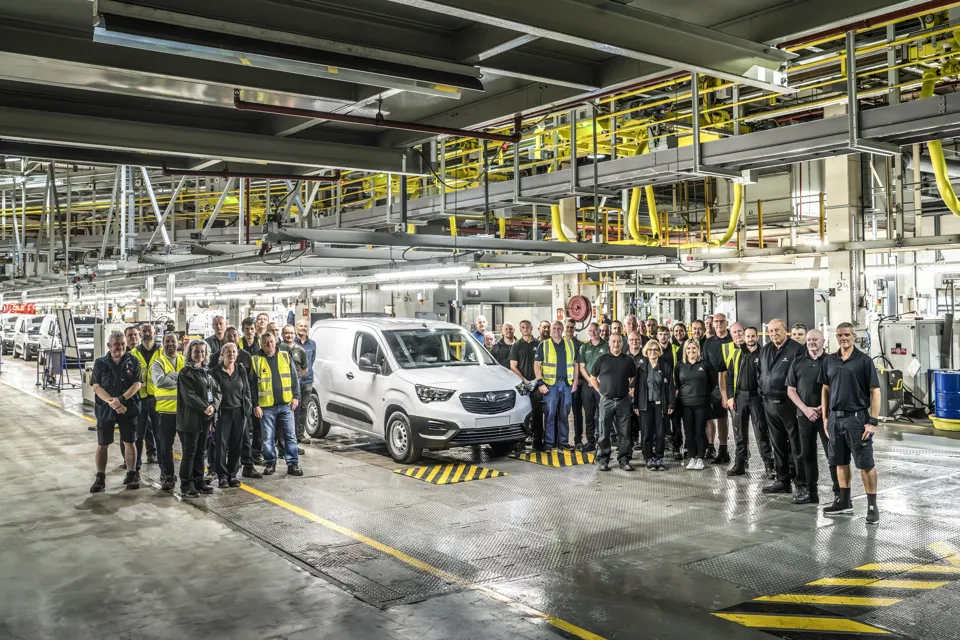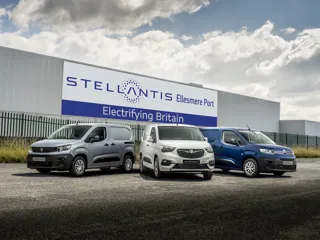Stellantis has restarted production at its Ellesmere Port factory after reinventing the location as a dedicated electric-only facility.
A £100 million investment has transformed the plant for EV production and it will specialise initially in electric vans, including the Vauxhall Combo Electric, Opel Combo Electric, Peugeot e-Partner, Citroën ë-Berlingo and the Fiat E-Doblò.
From 2024, Ellesmere Port will also produce a range of electric passenger vehicles across the Stellantis brands, including the Vauxhall Combo Life Electric, Peugeot e-Rifter and Citroën ë-Berlingo MPVs.
The plant’s future was at stake when production of the Astra was moved from Ellesmere Port in 2022, but Stellantis had already confirmed it would be turned into an EV factory.
Diane Miller, Ellesmere Port plant director, said: “The start of EV production at Ellesmere Port signals a bright future for the plant, ensuring it will continue to manufacture vehicles for many years to come.
“With Vauxhall’s long history of UK manufacturing, it’s especially fitting that the first electric model to roll off Ellesmere Port’s production line is a Combo Electric.
“While the welcome addition of the Fiat E-Doblò to the plant is a positive reflection of increasing electric vehicle demand.”
Miller added that Stellantis is “committed to working with the Government” on making sure the UK’s automotive industry remain competitive for producing EVs for the long term.
Ellesmere Port EV and sustainability upgrades

As part of its transformation for EV production, the Ellesmere Port plant has undergone several key changes, including the addition of a battery assembly shop, upgraded general assembly and relocation of the bodyshop.
Stellantis said this has contributed to a 60% reduction of the total site area for improved energy efficiency and productivity.
At 118,000m2, the entire plant is now a similar size to the previous bodyshop.
A new test track has also been built and a new parts distribution warehouse is in its final stages of construction, ahead of becoming fully operational in early 2024.
The plant upgrade also forms a part of Stellantis’ Dare Forward 2030 commitment to halve its carbon footprint by 2030 (based on 2021 data) and to become carbon net zero, globally, from 2038.
Sustainability improvements include the introduction of a new, more energy efficient ‘4-wet’ paint application process, while a localised CHP (combined heat and power) plant is also being installed to generate electricity on-site, bringing a further reduction in emissions.
As part of its ambition to become carbon neutral before the end of the decade, the plant is working towards running on solar and wind power as well as connecting to the HyNet North West Hydrogen Pipeline.
Ellesmere Port was built in 1962 and produced its first car, the Vauxhall Viva, in 1964. Since then, it has produced iconic models from the Vauxhall range including the Chevette and successive generations of the Vauxhall and Opel Astra. Since 1985, more than 4.1 million units have rolled off the production lines at Ellesmere Port.























Login to comment
Comments
No comments have been made yet.